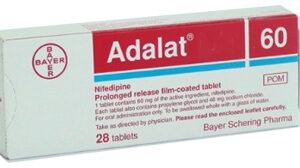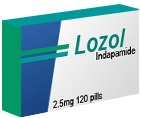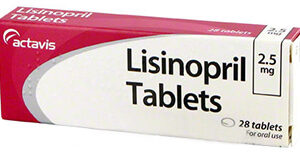Norvasc, also known by its generic name Amlodipine, is a prescription medication used to treat high blood pressure (hypertension) and chest pain (angina). It belongs to a class of drugs called calcium channel blockers which work by relaxing and widening the blood vessels, allowing for smoother blood flow. Norvasc is available in tablet form and is typically taken once daily. This medication should be used as part of a comprehensive treatment plan that includes lifestyle changes such as a healthy diet, regular exercise, and stress management.
What to Avoid When Taking Norvasc
There are several contraindications to taking Norvasc. It is important to avoid this medication if you have a known hypersensitivity or allergy to Amlodipine or any other ingredients present in the tablets. Norvasc should also be avoided if you have aortic stenosis, a heart condition characterized by the narrowing of the aortic valve. Additionally, individuals with severe low blood pressure (hypotension) or hepatic impairment should not take Norvasc. It is crucial to inform your healthcare provider about any existing medical conditions or allergies before starting this medication.
Norvasc and Your Health
Like any medication, Norvasc may cause side effects. Common side effects include dizziness, headache, and swelling in the ankles or feet. These side effects are usually temporary and mild. However, if they persist or worsen, it is important to consult your doctor. In rare cases, serious side effects such as fast or irregular heartbeat, severe dizziness, or fainting may occur. If you experience any of these symptoms, seek immediate medical attention. It is worth mentioning that not everyone will experience side effects while taking Norvasc.
Instructions for Norvasc
When taking Norvasc, it is important to follow the prescribed dosage and administration instructions provided by your healthcare professional. The typical starting dose for adults is 5 mg once daily, which may be increased to a maximum of 10 mg per day if necessary. It is best to take Norvasc at the same time each day, with or without food. If you miss a dose, take it as soon as you remember. However, if it is close to the time for your next dose, skip the missed dose and continue with your regular schedule. Do not take a double dose to make up for the missed one.
An overdose of Norvasc may lead to excessive lowering of blood pressure, which can cause symptoms such as lightheadedness, fainting, and rapid heartbeat. If you suspect an overdose, seek immediate medical attention. It is important to store Norvasc at room temperature, away from moisture and heat, and to keep it out of the reach of children.
Norvasc Compatibility
Norvasc may interact with other medications, potentially leading to adverse effects or reducing the effectiveness of either drug. It is important to inform your healthcare provider about all the medications you are currently taking, including prescription and over-the-counter drugs, as well as any herbal supplements or vitamins. Some drugs that may interact with Norvasc include simvastatin, atorvastatin, diltiazem, and grapefruit juice. They can increase the levels of Norvasc in your blood, leading to an increased risk of side effects. Your doctor will be able to determine the safest and most effective treatment plan based on your specific medical history and current medications.
Norvasc: Inquiry and Response
-
Q: Can Norvasc be used during pregnancy?
A: Norvasc should only be used during pregnancy if the potential benefits outweigh the potential risks to the fetus. It is important to consult with your healthcare provider before taking this medication if you are pregnant or planning to become pregnant. -
Q: Can Norvasc be taken while breastfeeding?
A: Norvasc may pass into breast milk and could have undesirable effects on a nursing infant. It is recommended to discuss the risks and benefits of taking Norvasc while breastfeeding with your healthcare provider. -
Q: Can Norvasc cause weight gain?
A: Weight gain is not a common side effect of Norvasc. However, if you experience unexplained or significant weight gain while taking this medication, it is important to consult your doctor. -
Q: Is it safe to drink alcohol while taking Norvasc?
A: It is generally advisable to limit alcohol consumption when taking Norvasc. Drinking alcohol can increase the risk of hypotension (low blood pressure) and may worsen certain side effects such as dizziness or lightheadedness. -
Q: Can Norvasc be abruptly stopped?
A: Norvasc should not be stopped abruptly without consulting your healthcare provider. Suddenly discontinuing this medication may lead to an increase in blood pressure and chest pain. Your doctor will provide guidance on the proper way to taper off Norvasc if necessary.






Reviews
There are no reviews yet.